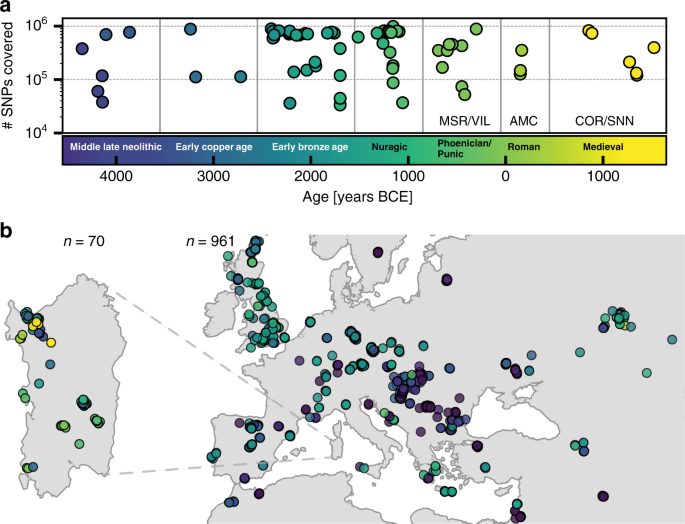Vitruvius
Regular member
- Messages
- 266
- Reaction score
- 478
- Points
- 61
What about the Greek names found in Tenney Frank's controversial paper on the Latin and Greek nomenclature of Roman slaves?
He associated Greek names with slaves from the Eastern Mediterranean including Anatolia and Syria.
Tenny Frank's conclusions in his article "Race Mixture in the Roman Empire" are dubious and unreliable. I think his conclusions in "Roman Census Statistics from 225 to 28 B. C." are much more sound in comparison. In his commentary he notes that out of 5,000 identified slaves within the Roman columbarium, that a slight majority of slave names (n=2,874 (57.5%)) are Greek in origin where as a slight minority of slave names are in turn, Latin (n=2,126 (42.5%)). Upon listing these figures he then draws an outlandish conclusion: "For these reasons, therefore, I consider that the presence of a Greek name in the immediate family is good evidence that the subject of the inscription is of servile or foreign stock." This is a very erroneous presumption.
Two things that stood out to me when reading this:
A: 100% of slaves in this sample had either Latin or Greek names in contrast to the possibility of Semetic, Germanic, North African or Celtic names. This implies that slaves were strongly locally derived or at least implies origin from the Northern Mediterranean where Latin and Greek populations and languages remained dominant. This is an important point and should not be overlooked. If one is to accept that at least some of the Greek names of slaves came by way of foreign extraction, then we also have to accept the absolute lack of foreign names from areas outside of the Northern Mediterranean in this large sample.
B: The relative division between Latin and Greek nomenclature does not seem so much different from the total populations of formerly Magna Graecian cities such as Pompeii. From the list of names at Pompeii there we see there more of a preference for Latin/Italic names compared to the slaves/freedmen of Rome but not excessively so. Of the 66 total names, only 48 are given with defined etymologies. Of these 48 defined etymologies, 34 (70.8%) are latin/Italic, where as 14 (29.1%) are Greek. To me this implies that the slave class of Rome likely did have a stronger Greek component to it, but such a component was already still widely found amongst Roman Citizens in much of Southern Italy by this era. To draw focus to the excessive Greek representation is not very useful without contextualizing how common Greek ancestry already had become amongst the Roman Italian populace. Furthermore any attempt to differentiate between between the etymologies of Magna Graecian/Italiote descended individuals and that of the wider Hellenistic era Greek world from outside of Italy are probably impossible. For this reason it is unsustainable and unsound to assume that the presence of a Greek name always or even typically implies a non Italian origin of recent extraction, much less an individual from the near east.
Last edited:





